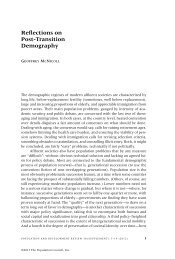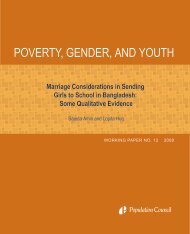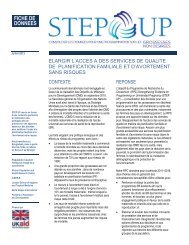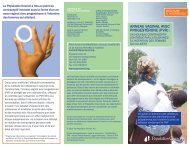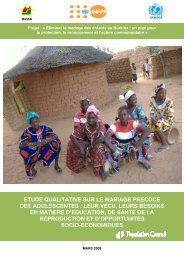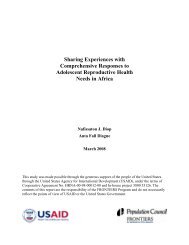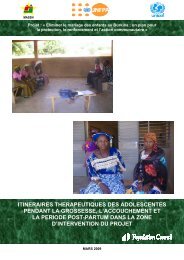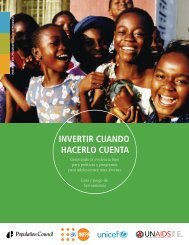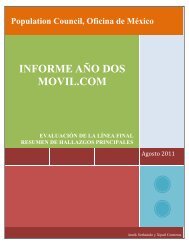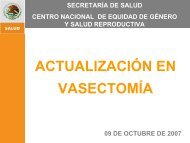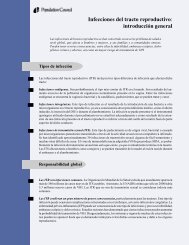Community Health Volunteer's Training Manual - Population Council
Community Health Volunteer's Training Manual - Population Council
Community Health Volunteer's Training Manual - Population Council
Create successful ePaper yourself
Turn your PDF publications into a flip-book with our unique Google optimized e-Paper software.
Module 1 The CHPS Concept<br />
80<br />
ALWAYS accept people as they are.<br />
Box 1.5.5: Rules for managing conflicts in Mansokrom community<br />
1. Remember we are here to work for health not ‘heart for hurts’<br />
2. Perform work you have volunteered to do with excellence, following laid-down<br />
procedures<br />
3. Thoroughly discuss all procedures, budgets, plans, etc with team members<br />
4. Attend all meetings or send a written or verbal excuse days prior to meeting day<br />
5. Be part of decision making. Make your agreement or disagreement verbally or in writing<br />
6. Vote on issues before a decision is made. If not, agree on appropriate methods to use in<br />
making decisions<br />
7. Discuss any disagreement and finish with it at the meeting<br />
8. Work with 2 or 3 other people if need be.<br />
9. Do not take any issues home and do not bring home issues into team work<br />
10. Be civil and respectful to all team members in times of conflict<br />
11. Bring in a third person where necessary<br />
12. Generate love not conflict.<br />
Topic 4 The volunteer’s role in managing<br />
conflicts<br />
Deal with conflicts within yourself<br />
Because conflict affects people’s emotions and souls, I will bring in some religious issues<br />
in conflict resolution. From the experience of many counsellors many conflicts remain<br />
unresolved but rather shelved. Conflicts, we have learnt, are not necessarily a bad thing for<br />
people within a group. Conflicts must be prevented, managed or resolved because they<br />
retard progress and spoil gains made by a team. Even though conflict brings about change,<br />
we lose out on good relationships and waste time.<br />
In your work as volunteers you will encounter conflicts. You may be involved in some<br />
yourself and may even be asked to arbitrate. What can you do to avoid conflicts as members<br />
and part of a team? How should you be involved? When should you arbitrate and when<br />
should you not? How can you use conflicts to enhance your work? What should be your<br />
role?<br />
Most of the information and skills you need to play your roles are found in this unit. You will<br />
need to practise some skills you have learnt in previous units too namely:<br />
1. Communication skills, especially listening and hearing, and the art of giving<br />
information



